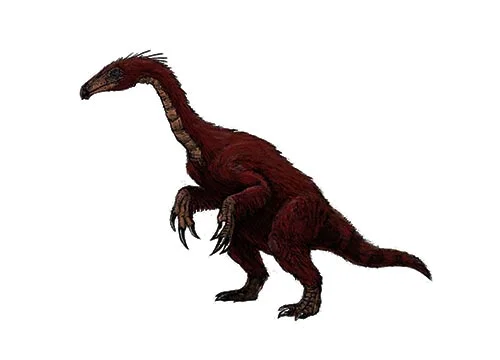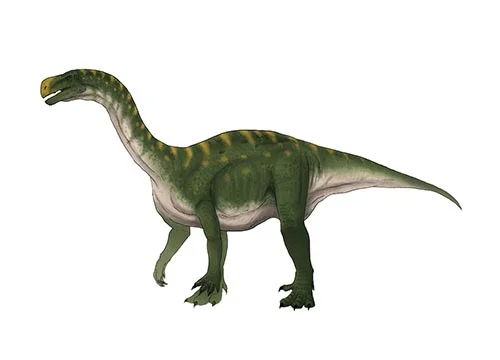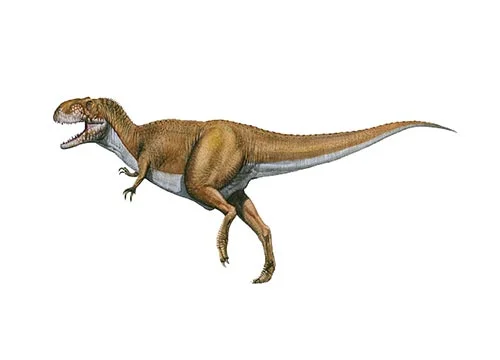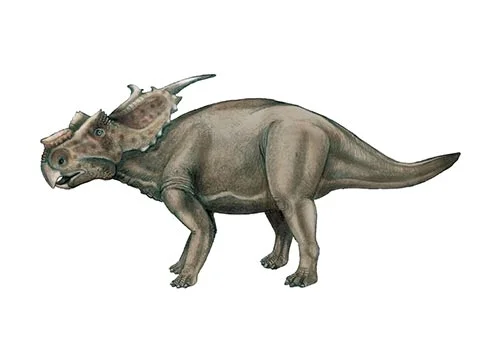Segnosaurus (Slow lizard)

Seg-no-sore-us
Altangerel Perle - 1979
Herbivore
Estimated up to 6 meters long
Large Theropod
S. galbinensis (type)
Mongolia, Bayan Shireh Formation
Late Cretaceous, 75 million years ago
Segnosaurus Facts
Segnosaurus, meaning “slow lizard,” is a genus of herbivorous dinosaur that lived during the Late Cretaceous period, about 75 million years ago. Its fossils have been found in the Gobi Desert of Mongolia and China, and it is known from several well-preserved specimens.
Segnosaurus was a medium-sized dinosaur that measured up to 6 meters (20 feet) in length and weighed around 1 ton. It had a massive, barrel-shaped body with a broad, deep chest and a short, thick neck. Its head was relatively small and triangular, with a beak-like mouth and a pair of large, forward-pointing teeth in the lower jaw. Its forelimbs were very short and powerful, with three-fingered hands that were adapted for grasping and pulling vegetation.
Segnosaurus is an unusual dinosaur because it had a number of unique features that set it apart from other herbivorous dinosaurs. For example, it had a wide, flat beak that was adapted for cropping tough vegetation, and its lower jaw was hinged in a way that allowed it to move up and down and from side to side, allowing for more efficient chewing. Additionally, it had a distinctive row of bony plates along its back that may have provided some protection from predators.
Segnosaurus is an important dinosaur because it is one of the best-known members of a group of herbivorous dinosaurs called the therizinosaurs. These dinosaurs were initially thought to be theropod dinosaurs, but they are now recognized as a distinct group that was adapted for herbivory. Segnosaurus and other therizinosaurs have provided important insights into the evolution of herbivorous dinosaurs and the origins of some of the unique features seen in modern birds.
Overall, Segnosaurus is a fascinating dinosaur that has contributed to our understanding of the evolution of herbivorous dinosaurs and the relationships between different groups of dinosaurs.



